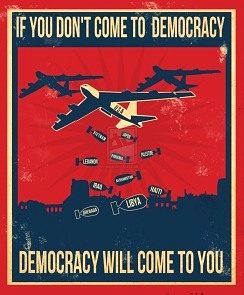Hero Cops? - On The Worship of Authority
Until most people abandon their respect for uniformed authority and their willingness to treat outsiders as the “other,” verdicts [like this one] will continue.
On Monday, January 13, two Fullerton, California police officers charged with the beating death of Kelly Thomas were acquitted, and the prosecutor announced his decision not to press charges against a third officer involved. Millions who had been following the story met the verdict with incredulity: How could anyone who watched that horrific video of Thomas pinned down and brutally beaten with fists and batons, begging for his life and calling out for his father, have possibly returned any verdict but guilty?
The answer lies in a famous psychological experiment — the Milgram Experiment — conducted in 1961. This experiment, conducted when the Nuremberg trials were still a recent memory, led subjects to believe they were torturing a fellow subject in the next room (who in fact was a confederate pretending to be a volunteer, and suffered no actual pain) with increasingly powerful electric shocks. Reassured by scientists in white coats that they would assume all responsibility, and urged to continue, subjects continued to (so far as they knew) inflict more and more painful shocks on their fellow subjects, even as the screams became louder and then went silent.
In short, these people were willing to inflict pain on strangers who were begging for mercy, to the point of unconsciousness and possible death, based on the assurances of “responsible authority figures,” so long as the victim was framed as an outsider.



























